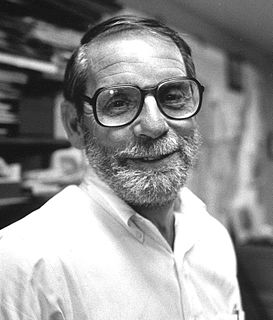A Quote by Terence McKenna
We are living in a very pivotal time. The time that we inherit from science is a time to humble you, to dwarf you. It tells you that the sun will not fluxuate for another billion years, that species come and go, and, in other words, on a temporal scale you don't matter. And that now doesn't matter. But when you look at the release of energy, the asymptotic speeding up of processes, we tend to be xenophobically oriented toward the human.
Related Quotes
A star is drawing on some vast reservoir of energy by means unknown to us. This reservoir can scarcely be other than the subatomic energy which, it is known exists abundantly in all matter; we sometimes dream that man will one day learn how to release it and use it for his service. The store is well nigh inexhaustible, if only it could be tapped. There is sufficient in the Sun to maintain its output of heat for 15 billion years.
One cannot buy, rent or hire more time. The supply of time is totally inelastic. No matter how high the demand, the supply will not go up. There is no price for it. Time is totally perishable and cannot be stored. Yesterday's time is gone forever, and will never come back. Time is always in short supply. There is no substitute for time. Everything requires time. All work takes place in, and uses up time. Yet most people take for granted this unique, irreplaceable and necessary resource.
For a long time, science has gone in the direction of sort of putting people in their place. We learned that the sun doesn't revolve around the Earth, the Earth revolves around the sun; we learned that we're just another species, evolved, like all other species, so we're just another animal, really.
In 5 billion years, the expansion of the universe will have progressed to the point where all other galaxies will have receded beyond detection. Indeed, they will be receding faster than the speed of light, so detection will be impossible. Future civilizations will discover science and all its laws, and never know about other galaxies or the cosmic background radiation. They will inevitably come to the wrong conclusion about the universe......We live in a special time, the only time, where we can observationally verify that we live in a special time.
Let me put it in a rather larger picture framework. Let's go to the longest time frame, the time frame of the life of our sun. As a star, our sun is about halfway through its life cycle. In the long run, we only have a couple of billion more years likely that we can inhabit this planet. By that time, we're going to have to be out of here before our sun dies. Now, I don't think we need to wait that long, and we certainly shouldn't wait that long. At the moment, we are not on a sustainable path.
On the geological time scale, a human lifetime is reduced to a brevity that is too inhibiting to think about deep time. ... Geologists ... see the unbelievable swiftness with which one evolving species on the Earth has learned to reach into the dirt of some tropical island and fling 747s across the sky ... Seeing a race unaware of its own instantaneousness in time, they can reel off all the species that have come and gone, with emphasis on those that have specialized themselves to death.
Let us remember, too, that greatness is not always a matter of the scale of one’s life, but of the quality of one’s life. True greatness is not always tied to the scope of our tasks, but to the quality of how we carry out our tasks whatever they are. In that attitude, let us give our time, ourselves, and our talents to the things that really matter now, things which will still matter a thousand years from now.
Most educated people are aware that we are the outcome of nearly 4 billion years of Darwinian selection, but many tend to think that humans are somehow the culmination. Our sun, however, is less than halfway through its lifespan. It will not be humans who watch the sun’s demise, 6 billion years from now. Any creatures that then exist will be as different from us as we are from bacteria or amoebae.
Can nine billion people be fed? Can we cope with the demands in the future on water? Can we provide enough energy? Can we do it, all that, while mitigating and adapting to climate change? And can we do all that in 21 years time? That's when these things are going to start hitting in a really big way. We need to act now. We need investment in science and technology, and all the other ways of treating very seriously these major problems. 2030 is not very far away
Experiments in geology are far more difficult than in physics and chemistry because of the greater size of the objects, commonly outside our laboratories, up to the earth itself, and also because of the fact that the geologic time scale exceeds the human time scale by a million and more times. This difference in time allows only direct observations of the actual geologic processes, the mind having to imagine what could possibly have happened in the past.
While, on the one hand, the end of scientific investigation is the discovery of laws, on the other, science will have reached its highest goal when it shall have reduced ultimate laws to one or two, the necessity of which lies outside the sphere of our cognition. These ultimate laws-in the domain of physical science at least-will be the dynamical laws of the relations of matter to number, space, and time. The ultimate data will be number, matter, space, and time themselves. When these relations shall be known, all physical phenomena will be a branch of pure mathematics.






































